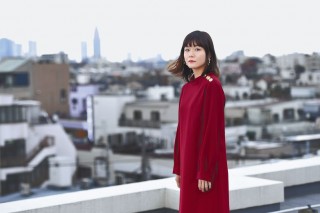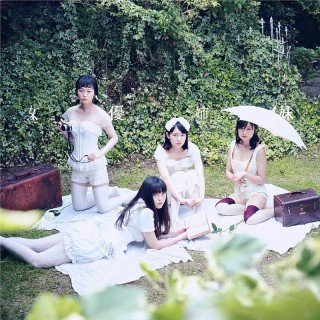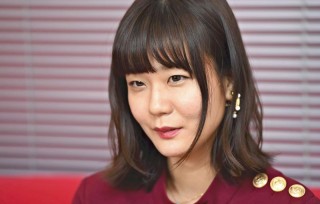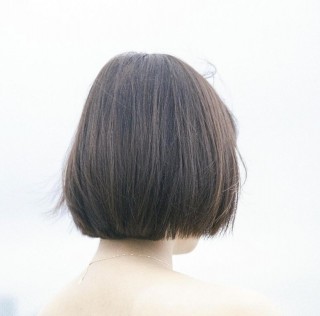Loading
Search
▼ Singer-Songwriter’s Stirring Storybook: Kayoko Yoshizawa Puts Myriad Emotions Into Lyrics
- Category:Tourism
Pure childhood memories or ominous, fevered thoughts are just some of the sources singer-songwriter Kayoko Yoshizawa draws from when creating songs. Her range is equally varied when singing, as she can freely switch between a gentle, whispering voice to powerful shouting.
Yoshizawa, 28, made her debut in 2014. Ever since, she has been highly regarded and with each new release her work has become richer and more diversified.
“Joyu Shimai” (Actress sisters), released last month, shows Yoshizawa making great strides in her career. The album is themed on women with “mirrors” as a motif. The title of the opening song is also “Kagami” (Mirror). “For me, mirror means facing myself,” Yoshizawa said.
In June, after the end of Yoshizawa’s concert at the Tokyo International Forum, a number of women had tears streaming down their cheeks as they came down a staircase. Perhaps Yoshizawa’s songs reminded them of some heartbreak or emotional conflicts on the path to adulthood.
Her song “Nokotteru” (Still remaining) has the lyric “Kaisatsu wa yosoyososhii kao de / Asagaeri o semerareta ki ga shita” (The ticket gate looked at me with an icy face / As if I were being blamed for not coming home until morning). Since the song’s release about a year ago, Yoshizawa has been gaining more female fans. The song depicts a young woman who is all alone on a chilly autumn morning after spending the night with the person she loves. The lyrics effectively illustrate the contrast of the chill morning air around her and the warmth from the night that she still feels within her.
Her song “Nokotteru” (Still remaining) has the lyric “Kaisatsu wa yosoyososhii kao de / Asagaeri o semerareta ki ga shita” (The ticket gate looked at me with an icy face / As if I were being blamed for not coming home until morning). Since the song’s release about a year ago, Yoshizawa has been gaining more female fans. The song depicts a young woman who is all alone on a chilly autumn morning after spending the night with the person she loves. The lyrics effectively illustrate the contrast of the chill morning air around her and the warmth from the night that she still feels within her.
“Is the coming home in the morning happy for her, or sad and painful?” Yoshizawa said. “I think it’s good if listeners have their own interpretation.”
“Nokotteru” has been played about 3 million times on YouTube. It suddenly became well-known in January, when it was featured on a TV show in which two music producers separately chose the song as one of the 10 excellent songs of 2017.
A listener tweeted a wish to hear more of her songs. In response, Yoshizawa tweeted her recommendations, featuring some cute songs, some for people undergoing mental stress, some for those who like languages. She added, “If you listen to ‘Kekeke,’ please do so after listening to the other songs.”
“Nokotteru” has been played about 3 million times on YouTube. It suddenly became well-known in January, when it was featured on a TV show in which two music producers separately chose the song as one of the 10 excellent songs of 2017.
A listener tweeted a wish to hear more of her songs. In response, Yoshizawa tweeted her recommendations, featuring some cute songs, some for people undergoing mental stress, some for those who like languages. She added, “If you listen to ‘Kekeke,’ please do so after listening to the other songs.”
She remembered that tweet with a shy smile. “I thought I was labeled as always making very realistic songs. I wanted to say they are only part of my stories and I’ve offered various others, too.”
Each time an album of hers is released — one a year since 2015 — it has a different theme, such as childhood, everyday scenes and dark imaginings. One of her pop songs exposes the cruelty of girls’ groups, while another comically focuses on unwanted body hair. There is also a jazzy swing song about a woman running away carrying her husband’s severed head with her.
“I’m always thinking about the right order to present my ideas, like playing cards effectively,” she said.
Each time an album of hers is released — one a year since 2015 — it has a different theme, such as childhood, everyday scenes and dark imaginings. One of her pop songs exposes the cruelty of girls’ groups, while another comically focuses on unwanted body hair. There is also a jazzy swing song about a woman running away carrying her husband’s severed head with her.
“I’m always thinking about the right order to present my ideas, like playing cards effectively,” she said.
Her uninterrupted creative power was nurtured during her elementary and junior high school years when she played truant. She was not good at communicating with people, and instead looked through storybooks and poetry books, immersing herself in a world of imagination and language.
“I was just scared of going out,” she said. The only escape was a hut on the rooftop of the casting factory her parents operated. She mounted a broom in her “training to become a witch.” Also, she told her dog: “I know you can talk to people. Now’s a good time because my mom isn’t around.”
“I was running away from school, it might be called a society, as I couldn’t face it well,” she said. “I thought I could be connected to society for the first time when I wrote a song in my high school years.”
She added, “I found a door leading to my current work at a place I reached after running away, and this is the message I want to convey to children who are similar to me in my youth.”
Yoshizawa said that people often ask her if she has already given up becoming a witch.
“I haven’t given it up because songs have the power of magic,” she said. “Even though songs can’t make people fly in the sky, they can affect the feelings of the listeners or they change such small things as the agenda for tomorrow.”
However, Yoshizawa added: “These effects are so fragile and don’t last long. I feel hopeless discovering how helpless I am.”
Her song “Muse” was released in June. She secretly dedicated it to a friend who was suffering. She thought it would be difficult to express her feelings to her friend, so she wrote them down in the lyrics, which remained unchanged.
In the beginning of the song, she describes her belief in the power of words, “Tatakatte iru anata wa utsukushii” (When struggling, you look so beautiful).
A song made with a special feeling can be a tribute to all women with wounded hearts. People who were crying at her concert were probably moved by this song, too.
“I was just scared of going out,” she said. The only escape was a hut on the rooftop of the casting factory her parents operated. She mounted a broom in her “training to become a witch.” Also, she told her dog: “I know you can talk to people. Now’s a good time because my mom isn’t around.”
“I was running away from school, it might be called a society, as I couldn’t face it well,” she said. “I thought I could be connected to society for the first time when I wrote a song in my high school years.”
She added, “I found a door leading to my current work at a place I reached after running away, and this is the message I want to convey to children who are similar to me in my youth.”
Yoshizawa said that people often ask her if she has already given up becoming a witch.
“I haven’t given it up because songs have the power of magic,” she said. “Even though songs can’t make people fly in the sky, they can affect the feelings of the listeners or they change such small things as the agenda for tomorrow.”
However, Yoshizawa added: “These effects are so fragile and don’t last long. I feel hopeless discovering how helpless I am.”
Her song “Muse” was released in June. She secretly dedicated it to a friend who was suffering. She thought it would be difficult to express her feelings to her friend, so she wrote them down in the lyrics, which remained unchanged.
In the beginning of the song, she describes her belief in the power of words, “Tatakatte iru anata wa utsukushii” (When struggling, you look so beautiful).
A song made with a special feeling can be a tribute to all women with wounded hearts. People who were crying at her concert were probably moved by this song, too.
“I can’t tell my friend, ‘Keep going.’ But I also can’t say, ‘You don’t have to keep going,’ because I know that the friend wants to keep going,” she said. “I just wanted to praise how well my friend is doing in her struggle.”
- December 7, 2018
- Comment (0)
- Trackback(0)






